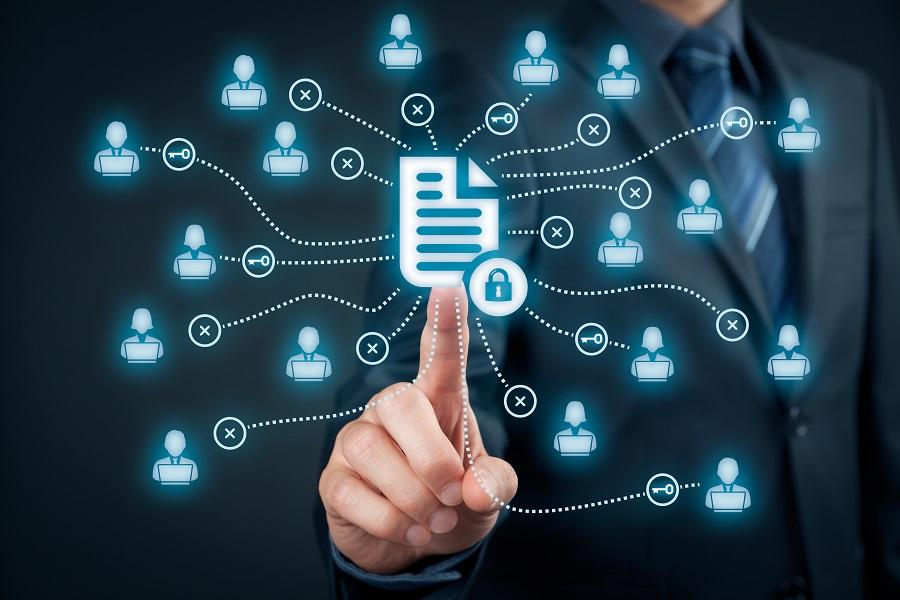
Data sharing is a key enabler of growth, employment and competitiveness for Europe, as well as for the Digital Single Market envisaged by the European Union. (..) Re-using data can save costs, time and lives”. These are the first words of the new report of the European Data Portal (EDP), Analytical Report 12: Business-to-Government Data Sharing, whose objective is to support the supply of private sector data to public bodies (Business-to-government B2G) under preferential conditions for its re-use.
The report analyses the benefits and challenges of B2G data sharing, provide guidance in the form of principles of B2G data sharing, models, legal and practical considerations and technical means.
The importance of B2G data sharing
Data sharing can benefit both the public sector, as a re-user, and the private sector, as a publisher.
In the case of the public sector, as we have seen in other occasions, open data can help improve decision making and policy making, optimize public services and increase efficiency in both internal administrative processes and the delivery of services to the public. According EDP data, the accumulated cost savings for public administrations in the EU28+ in 2020 will be of1.7 bn. EUR.
Extending the re-use of data to private sector resources can only expand this potential. For example, behavioural patterns of citizens (traffic, shopping, diseases, etc.) can be used to understand, evaluate and predict population needs.
On the other hand, private companies can also take advantage of data opening:
- Improve companies’ reputation. B2G data sharing can be considered as a corporate social responsibility action, which can enhance community relationships and improve companies’ reputation.
- Improve employer branding. Associating a brand with a positive image (an open and transparent company that shares information) can boost the attraction and retention of talent
- Improve insight. The fact that third parties work and analyse a series of companies data can help answer questions they could not have found by working in isolation.
- Increase reciprocity. Data can help improve services that the company will use. As an example, Uber's open data can help improve traffic management by public agencies, which ultimately benefits the company.
Despite these benefits, private data cannot always be opened, due to strategic or confidentiality issues. However, there are different formulas to drive B2G data sharing. But before addressing these formulas, many companies need to face a series of challenges.
Barriers to B2G data sharing
In order to share their data, companies have to overcome organizational, technical and legal challenges.
- Organizational barriers: Before launching an initiative of this type, a company needs to collect, validate and prepare its database, so it will need new resources (according to the report, only 35% EU companies have robust processes for data capture, curation, validation and retention). These costs are easy to measure, while the benefits are sometimes difficult to calculate. In addition, it´s also important consider the possible ethical implications, the lack of leadership, and the reaction of customers, who do not always agree with sharing their data.
- Technical barriers: Data providers have to guarantee a series of basic processes, such as gathering and selecting the data. Likewise, it is necessary to address aspects such as data accuracy and completeness, avoiding duplications. And do not forget the anonymization, pseudo-anonymization or aggregation processes to guarantee the privacy of personal information.
- Legal barriers: The absence of a specific legal framework and a lack of reference cases, nor documentation about best practices or standard scenarios make difficult to implement these initiatives. Therefore, it is necessary to rely on the different national and international legal regulations that could affect data sharing process, such as intellectual property rights, data protection rights or competition laws, as well as establishing a governance model and seeking legal expert support.
Recommendations for a successful data sharing
In short, a successful and sustainable B2G data sharing must be legally compliant, technically feasible, socially acceptable, financially and commercially viable and has to mitigate risk effectively.
In order to comply with all these requirements, the EDP finalizes its report with a series of recommendations:
- Team up with renowned and authoritative third parties. Partnering with prestigious researchers, associations or research centres helps to better understand the context, as well as to take advantage of its good reputation.
- Involve the customers. Although data sharing process is carried out with all legal guarantees, customers may not agree. Therefore it is advisable to inform customers, increasing their participation in the process, through civic associations or benefits such as additional insight and services.
- Use a code of conduct. It is necessary to define rules, values and principles, taking into account the ethical and legal conditions.
- Set up a data sharing framework. This framework should include a financial model, training mechanisms, support services, metadata description processes, etc.
- Specify contractual agreements. In the absence of a specific legal framework, it is necessary to sign a contract between the data provider and the data user, where the responsibilities of each party are clear.
- Use new technologies. As for example, blockchain.
This is not a simple process. However, it can be seen as an opportunity. In the current economic context, companies need to properly manage their data, so, if they do not want to lose competitive advantages, they will have to face the organizational and technical challenges described above sooner or later. In addition, it could be an opportunity to establish mechanisms for B2G data sharing, so the benefit can be twofold.
Cómo puedo realizar esta alianza entre la empresa privada y el ministerio
Buenos días Yhony,
Puede enviarnos un email a contacto@datos.gob.es esplicando con detalle su duda para que podamos darle respuesta.
Un cordial saludo.